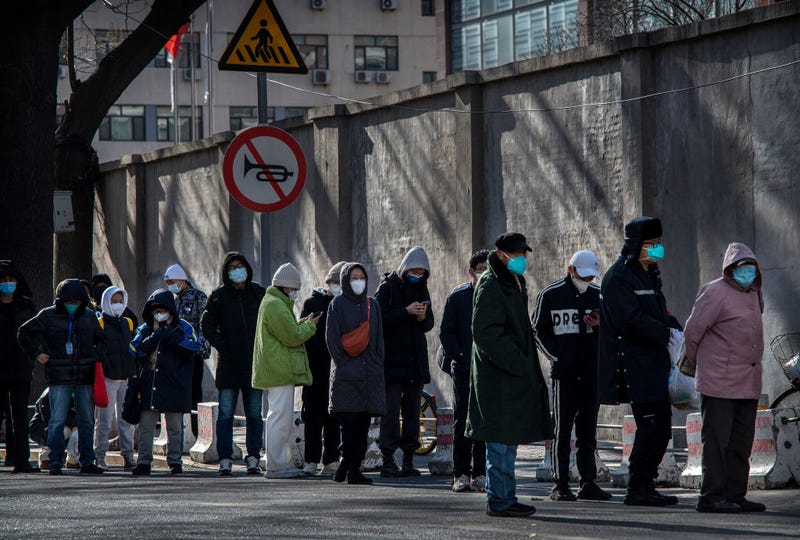
SAN FRANCISCO (KCBS RADIO) – After abandoning its zero COVID-19 policy earlier this month, China is dealing with a massive surge of COVID-19 cases that are overwhelming the healthcare system.
For more, stream KCBS Radio now.
The change came very abruptly after the country’s strict standards were abandoned, including the requirements for testing and social distancing.
"The concern in China is because of the zero COVID-19 policy that they’ve had, the benefit of that is that a very small proportion of the population has been infected, and so there’s little immunity," said Dr. Dean Blumberg, an infectious disease specialist with UC Davis Health on KCBS Radio's "Ask an Expert" with Margie Shafer and Eric Thomas on Monday.
"The other concern is that the vaccines that they're using in China don't appear to be as effective as the vaccines we’re using," he said.
The standard vaccine in most western countries is the mRNA, which has proven to be pretty effective against the virus.
Along with that, China also has a relatively low vaccination rate in the most vulnerable populations, the elderly and those with underlying health conditions.
"That can lead to not only an increased number of cases, but an increased number of deaths," said Blumberg.
The worry is that there won't be enough resources to respond to this wave of new cases, including space at healthcare facilities and treatments.
If the healthcare system does become overwhelmed, it's possible that authorities will enact restrictions once again.
It's not yet clear how other respiratory viruses like RSV and influenza will affect the country as well.
"We do expect an increase in influenza in the northern hemisphere in virtually all countries this year," said Blumberg.
In order to mitigate the worst case outcome, it might have been better if China rolled back its COVID-19 procedures at a measured pace, instead of abandoning them all at once.
It also might have helped if the country had been a bit more proactive about vaccination rates, particularly for older people.
"For people older than 60, only 70% of them have received their third dose of the vaccine," he said. "They really need a fourth dose vaccine."
In the United States, the situation is much different because at this stage in the pandemic more than 90% of people have acquired some sort of immunity against the virus, like past infection couple with vaccination.
"We just don't face the same risks that occur in China," said Blumberg.
DOWNLOAD the Audacy App
SIGN UP and follow KCBS Radio
Facebook | Twitter | Instagram

